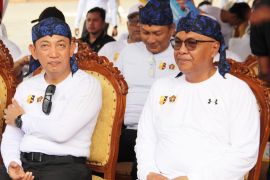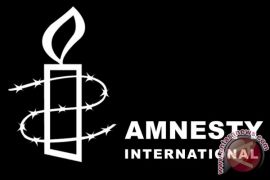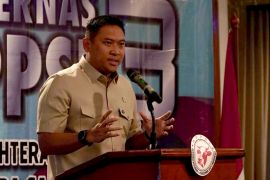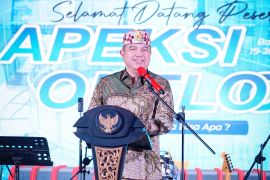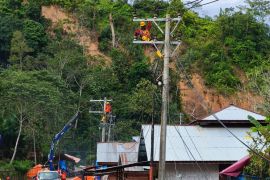On the occasion of the seventh anniversary of Munir death, London-based Amnesty International urged the attorney general to start new investigations of the case as a priority, Antara`s London correspondent learnt from Amnesty International Tuesday.
Amnesty International said the lack of accountability in the Munir case has contributed to the feeling of fear for human rights defenders in Indonesia, and raised questions on the government`s commitment to protecting human rights defenders.
Munir was found dead in a Garuda airline company`s flight from Jakarta to the Netherlands on September 7, 2004. An autopsy by Dutch authorities showed that Munir was poisoned with arsenic. Although two people had been punished for the murder, it has strongly assumed that they were responsible.
On December 31, 2008, Muchdi Purwoprandjono, former deputy director of the State Intelligence Agency, had been acquitted for suspicion of planning and helping and assisting the murder of Munir.
At that time, human rights groups said the trial did not meet international court standards after the key witness had withdrewn his sworn statements.
In the report sent to the UN special reporter on the condition of human rights defenders in 2009, the Solidarity Action Committee for Munir, KASUM, concluded that the freedom of Munir as a setback in holding human rights and the protection of human rights defenders.
In February 2010, a special Human Rights National Commission found strange things in police investigations, prosecuting and trial of Muchdi Purwoprandjono and recommended fresh police investigations.
A report in 2005 by an independent fact finding team (TPF Munir) formed by President Susilo Bambang Yudhoyono had not been published, although it had been recommended under a presidential decree in forming the team.
Munir was a leading human rights defender in Indonesia, who has raised dozens of activists who had been forcefully eliminated in the last months of the Suharto regime in 1998. He also played an important role in disclosing evidence of the involvement of the military in human rights violations in Aceh and Timor Leste.
And the lack of accountability in the murder of Munir was a horrible warning for human rights defenders in Indonesia that their work made them prone to threats and impunity for those responsible for human rights violations in the past, including torture, illegal murder, and forced elimination of human rights defenders.
The open letter of Amnesty International was signed by deputy director of Amnesty International of Australia, Peter Thomas, director of Amnesty International of France, Stephan Oberreit, deputy director of Amnesty International of Germany Wolfgang Grenz, who said that Amnesty expressed true hope and convection that they attorney general will consider and supported the recommendations.
The open letter was signed by director of Amnesty International of Hong Kong, Mabel AU, director of Amnesty International of Japan, Hideki Wakabayashi, director of Amnesty International of Malaysia, Nora Murat, and director of Amnesty International of Mongolia, Altantuya Batdorj, director of Amnesty International of Nepal, Rameshwar Nepal, director of Amnesty International of the Netherlands, Eduard Nazarski, director of Amnesty International of New Zealand, Patrick Holmes, director of Amnesty International of the Philippines, Aurora Parang. (*)
Editor: Kunto Wibisono
Copyright © ANTARA 2011
